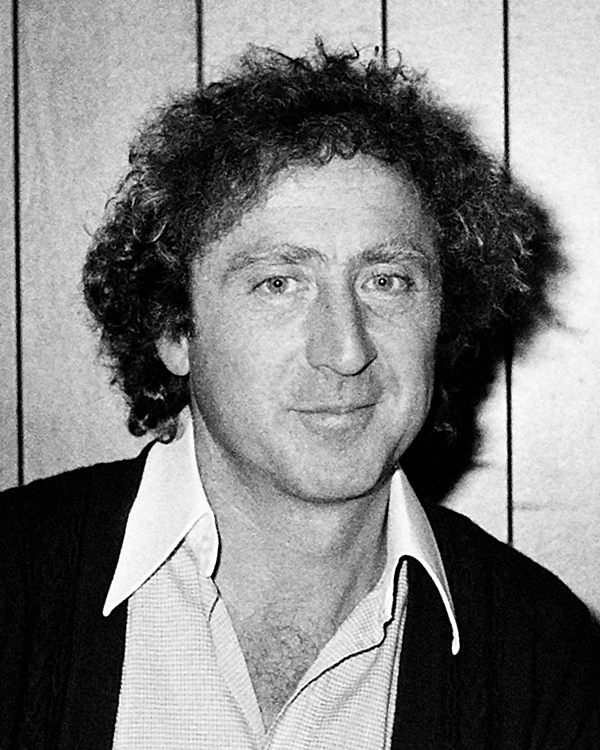
- Industry
Gene Wilder – A Master of Comedy Speaks
Gene Wilder was born Jerome Silberman in Milwaukee, Wisconsin June 11, 1933 and in a career spanning five decades made comedy history. He was twice nominated for a Golden Globe as Best Actor, Comedy, once in 1972 for Willy Wonka & The Chocolate Factory and again in 1977 for Silver Streak. HFPA journalists met Wilder in 1976 for Silver Streak and in 1977 for The World’s Greatest Lover. We asked him what inspired him to turn to comedy at an early age.
“When I was 6 years old, my mother had a heart attack and the doctor said that she could die very easily if she got too excited and to try to keep her happy. She was in pain, and now looking back I remember it was from that time on that I would try to make her laugh and I succeeded. I think the encouragement that you get from your mother when you’re a child, it’s probably what gives you that confidence to do those things later on in life, because if your mother liked it, why shouldn’t the rest of the world like it?”
Having decided early on what his avocation would be, Wilder studied with Lee Strasberg at the Actors Studio. He was both a practitioner and a student of comedy, one of his early inspirations being a master of the form. “I’m neither a comedian nor a clown,” he told the HFPA, “but a comedy actor. While studying acting in New York, I attended a Charlie Chaplin’s film festival at The Plaza Theater. I saw Shoulder Arms (1918), The Pilgrim (1923), The Great Dictator (1940), but what that was really awakening in me was the writer not the actor. I was particularly impressed by Modern Times (1936) and City Lights (1931), because Chaplin created an empathy with the audience, touched people through comedy.”
His role models also included more recent American masters as he explained: “The people I looked up to when I was a little boy were Danny Kaye, I thought his first movie, Up in Arms (1944), was the best, that was very witty. But then I switched to Sid Caesar; I thought he was the best of them all. I still do, he and Jonathan Winters, and I didn’t realize it was a 21-year-old Mel Brooks who was writing for Sid Caesar’s Your Show of Shows on television, but I fell in love with Sid Caesar and I said, that’s what I really want to do!”
But the encounter that would define his career came in 1963. “Mel Brooks worked for years to raise the money for Springtime for Hitler, which later became The Producers. That started our relationship, then there were Blazing Saddles and Young Frankenstein and we became very close. I consider him the only authentic genius that I’ve ever worked with by my standard and I love him as a member of my family.”
At the same time Wilder was eclectic, lending his talents to different comedy styles. In 1972 he was masterful and hilarious in Woody Allen’s Everything You Always Wanted to Know about Sex * But Were Afraid to Ask. “Woody Allen is brilliant, but has a completely different kind of humor, it’s much more intellectual. On his set it’s like how I would imagine an Ingmar Bergman set. He never talked to me, there’s no embracing, no hugging, no kissing, and at the end we just shook hands goodbye.”
“When I direct, my sets are more romantic, there’s music playing, waltzes, Chopin. I want to create a peaceful atmosphere, because if you want good performances you have to have relaxed actors.” And Wilder knew exactly what he was aiming for. “It’s easy to make me laugh. I chuckle at sophisticated humor, but I really love basic, corny humor, that’s why I laugh so much at Mel Brooks, not at intellectual humor but emotional humor. I’m a wet comic, not a dry comic, I appreciate wit, but it’s not what I like to spend that much time with.”
Gene Wilder died as he had lived, after his passing his wife Karen released this statement: “He passed holding our hands with the same tenderness and love he exhibited as long as I can remember. As he performed one last breath, the music speaker began to blare out one of his favorites: Ella Fitzgerald was singing Somewhere Over the Rainbow.”

